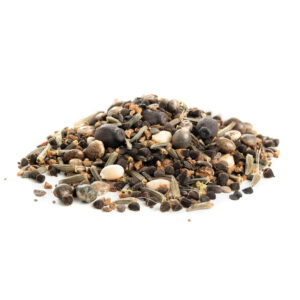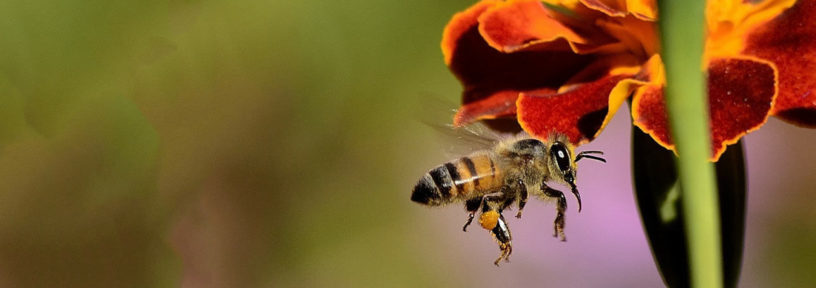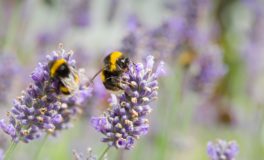Parasite threat to native bees – we import between 40,000 and 50,000 bumblebee colonies into the UK to support crop pollination.
Scientists have bought 48 colonies – hives containing up to 100 bees each – from three producers in Europe.
Regretably, they found 77% had parasites that could infect native bees. Their findings have been published recently in a study in the Journal of Applied Ecology.
Lead researcher Prof William Hughes, from the University of Sussex, said commercial production and importation of bumblebees had been “going on for decades”.
“We couldn’t grow tomatoes in this country without these bumblebees,” he said.
And with the decline in pollinating insects in recent years and this threat to native bees food producers are increasingly reliant upon imported bees.
“Over a million colonies are imported globally – it’s a huge trade,” said Prof Hughes. “And a surprisingly large number of these are produced in factories, mainly in Eastern Europe.
“We sought to answer the big question. Do imported colonies have parasites and, if so, are those parasites infectious or harmful.”
Fundamentally, bees play a crucial role in our ecosystem. They are responsible for pollinating the majority of plants that produce the fruits, vegetables, and nuts we eat. However, like any living creature, bees are susceptible to parasitic infections that can be fatal to the entire hive. In the UK, there are several dangerous parasites that pose a threat to the health of bees.
Varroa Mite
The Varroa Mite is a small, external parasite that feeds on the blood of adult bees and developing brood. Significantly, this mite is considered to be the most dangerous threat to bee colonies worldwide, and its introduction to the UK in the 1990s has had a devastating impact on honeybee populations. In time, the mite weakens bees and can spread viruses, resulting in colony collapse.
Nosema
Nosema is a fungal parasite that infects the gut of bees, leading to reduced life expectancy and impaired foraging ability. This parasite can cause dysentery, and in severe cases, it can lead to the death of the bee. Nosema is highly infectious and can spread quickly throughout a colony.
Create your own wildflower patch to support UK bees
 |
 |
 |
 |
 |
 |
Wax Moth
Wax moths are destructive pests that can cause significant damage to beehives. The adult moth lays eggs in the honeycomb, and the resulting larvae feed on the wax, honey, and brood, destroying the hive in the process. Moreover, Wax Moths can also transmit diseases to the hive, making them a significant threat to bee health.
Acute Bee Paralysis Virus (ABPV)
The Acute Bee Paralysis Virus (ABPV) is a highly infectious virus that can cause paralysis in adult bees. The virus can spread rapidly throughout a colony, resulting in a high mortality rate. The virus is often spread through the Varroa Mite, making it even more dangerous.
Deformed Wing Virus (DWV)
The Deformed Wing Virus (DWV) is a viral disease that causes malformation of the wings and other body parts of bees. The virus is transmitted through the Varroa Mite and can result in a high mortality rate in infected colonies.
Consequently, parasites are a significant threat to bee health and can result in colony collapse if left unchecked. In addition, Varroa Mites, Nosema, Wax Moths, Acute Bee Paralysis Virus, and Deformed Wing Virus are some of the most dangerous parasites affecting bees in the UK. Beekeepers and researchers must continue to work together to find ways to prevent and treat parasitic infections to ensure the survival of these essential pollinators.
To help bees in your local area and to counter this parasite threat to native bees – create a Meadowmat Wildflower Meadow.
For more information got to:http://www.bbc.co.uk/news/science-environment-23347867

 How do you keep bees on a roof
How do you keep bees on a roof 


